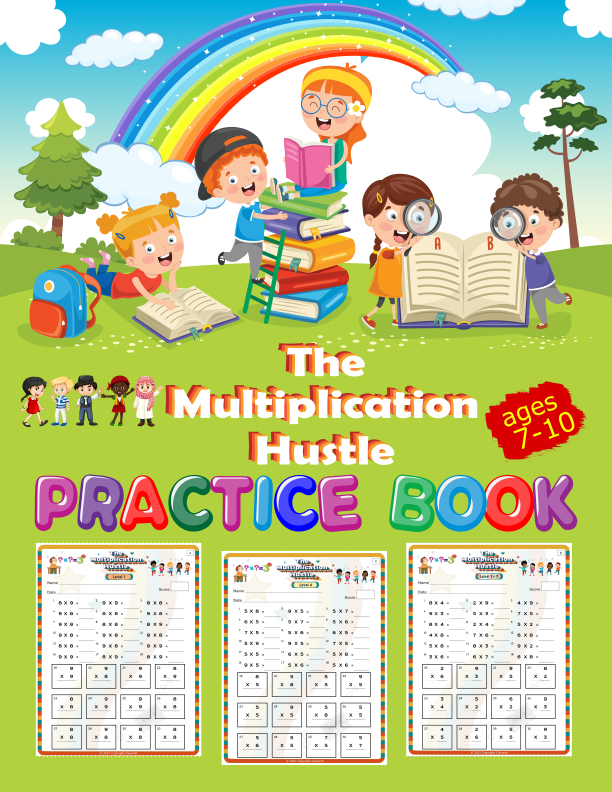Introduction
Summer break is an eagerly-awaited time for students to unwind and enjoy quality moments with loved ones, but it can also result in a loss of academic progress known as the “summer slide”; therefore, it’s crucial to continue learning throughout the summer to preserve the academic achievements attained throughout the school year and potentially get ahead for the upcoming term. In this blog post, we’ll delve into efficient strategies, utilizing resources available today, that aid students in preventing the summer slide and retaining their academic progress.
The Importance of Preventing the Summer Slide
Preventing the summer slide is essential for maintaining academic progress, closing the achievement gap, building self-confidence, developing lifelong learning habits, expanding interests and skills, encouraging family engagement, and staying mentally sharp. When students take an extended break from learning, they risk losing academic progress made during the school year, especially in subjects like math and reading. Studies have shown that the summer slide disproportionately affects students from low-income families, contributing to a widening achievement gap. By engaging in summer learning, students can boost their self-confidence, develop a habit of continuous learning, explore new subjects and activities, and strengthen family bonds through active parental involvement. Furthermore, summer learning helps keep the brain active and sharp, ensuring students are prepared for the challenges of the new school year and beyond.
Promote Reading
Reading is a fantastic method for students to maintain and enhance their academic progress during summer. Encourage your child to read for at least 20-30 minutes daily. This can be transformed into a family activity by forming a book club or summer reading challenge. To make reading more accessible, students can access e-books and audiobooks through online libraries like Libby, Overdrive, and Sora. Moreover, Kindle Unlimited provides a vast array of books for a nominal monthly fee. Encourage your child to read for at least 20-30 minutes daily.
Enroll in Summer Programs
Summer programs, whether educational or recreational, offer students the chance to learn new things, develop new skills, and forge new friendships. Numerous schools and community centers provide summer programs for students. These programs can vary from sports camps to academic camps. Summer programs are available both in-person and online, presenting more flexibility and options for students. If your child has a specific interest, search for summer programs that concentrate on that subject. For instance, if your child is fascinated by science, seek a science camp or workshop.

Practice Math Skills
Math is a subject many students find challenging, and it’s crucial to keep practicing math skills during the summer to avoid losing progress. Multiple online resources are available for students to refine their math skills. Websites like Khan Academy and IXL offer interactive lessons and exercises for students to work on. Additionally, many schools and districts provide subscriptions to math programs like DreamBox and ST Math, which students can access from home.
Encourage your child to set a goal for themselves, such as mastering multiplication tables or learning a new math concept.
Start a Summer Project
Embarking on a summer project is an excellent way for students to keep their minds engaged and explore their interests. Encourage your child to begin a project that aligns with their passions. For example, they could start a garden, learn a new instrument, or launch a blog. Numerous online resources are available for students to acquire new skills and initiate their own projects. Platforms like Skillshare and Udemy offer a wide range of courses on various topics, from photography to coding.
Assist your child in setting goals for their project and encourage them to work on it consistently throughout the summer.

Make Learning Fun
Learning doesn’t have to be monotonous and tiresome. There are several fun and engaging ways for students to keep learning during the summer. Websites like Quizlet and Kahoot provide interactive quizzes and games to help students review and learn new information. Furthermore, many museums and cultural institutions offer virtual tours and activities that students can participate in from home. You can also make learning enjoyable by incorporating it into family activities. For example, if you’re cooking dinner, involve your child in measurements and fractions.
Set Goals for the Summer
Urge your child to set goals for the summer. These goals can be academic, such as mastering a particular math concept, or personal, such as acquiring a new skill or hobby. Setting goals can help your child stay focused and motivated throughout the summer. It’s important to ensure the goals are achievable and realistic so your child doesn’t become discouraged. Encourage your child to track their progress and celebrate their accomplishments.

Take Breaks to Recharge
While it’s essential to continue learning over the summer, it’s equally important to take breaks and enjoy the time off. Encourage your child to take breaks throughout the day to rest and recharge. This can include taking a walk, playing outside, or reading a book for enjoyment. It’s also crucial to take longer breaks, like a family vacation, to relax and spend time together.

Foster a Love of Learning
The ultimate objective of summer learning is not only to prevent the summer slide but to cultivate a love for learning that will endure a lifetime. Encourage your child to explore their interests, ask questions, and seek out new knowledge. Help them see learning as something fun and exciting, not just something they have to do for school. By nurturing a love for learning, you’ll be setting your child up for success not just in school, but in life.
Conclusion
In conclusion, summer vacation is an excellent time for students to rest and recharge, but it’s also crucial to keep their minds engaged and prevent the summer slide. Encourage your child to read, participate in summer programs, practice math skills, initiate a summer project, make learning enjoyable, set goals, take breaks, and cultivate a love for learning. With the abundance of resources available today, there are endless opportunities for students to keep learning and growing throughout the summer. By utilizing these resources and strategies, you can help your child not only maintain their academic gains but also potentially get ahead for the upcoming school year.

